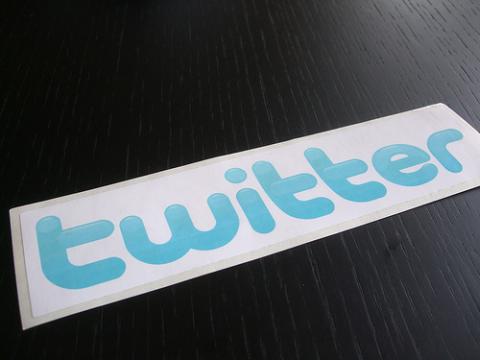TDs rush to Twitter ahead of Election 2011

Twitter's popularity is booming among Irish politicians, some of whom feel it is changing the rules of traditional politics. But its impact on Election 2011 will be limited. By Joe Galvin.
Fianna Fáil TD Mary O'Rourke added her name to the evergrowing list of disgruntled government backbenchers on Monday last by calling on Taoiseach Brian Cowen to name a date for the general election. "Hey Brian," said O'Rourke, "will you please name the date? We are tired waiting."
Nothing unusual in this, coming from Mary O'Rourke. What was unusual, though, was that she chose to voice her disgruntlement not through the broadcast media, or through the newspapers, but through Twitter. O'Rourke is a relatively recent convert to Twitter, but she joins an ever-growing rank of TD Twitterati.
As of 3 January 2011, 66 TDs, or 40.49% of all TDs, have Twitter accounts. However, 14 of those have never tweeted, leaving 52 active accounts comprising 31.9% of all Dáil deputies, and 31 of that 52 (59.61%) first began tweeting in 2010. Prominent politicians, such as junior minister and Green TD Ciaran Cuffe, Labour's Joan Burton and current defence minister and outgoing TD Tony Killeen, are all enthusiastic users of the service and PR firm Pembroke Communications found that 58% of Fianna Fáil TDs, 67% of Labour TDs and 90% of Fine Gael TDs plan to use Twitter as a campaign tool in the next general election.
For some commentators, it's changing the rules of political interaction. “The immediacy of Twitter...is changing the rules of the game for traditional media, as for traditional politics,” enthused Hugh Linehan of the Irish Times on 27 December 2010, and, internationally, Andrew Sullivan of the Atlantic said that the "revolution will be Twittered".
However, Green Party Senator Dan Boyle, one of Irish politics' most enthusiastic tweeters, is wary of such rhetoric. "It is developing a significance, but that significance tends to be overstated," said Boyle. However, he feels Twitter will give him "a certain advantage" over his competitors when he stands for election this year.
Although no definitive figures exist for Twitter use in Ireland (Twitter are notoriously reticent when it comes to releasing usage statistics), estimates suggest that between 2% and 7% of the Irish population have Twitter accounts. A small fraction of these users would be interested in politics. If a party were to motivate this small fraction to vote for them in the coming election it would have relatively little impact at the polls, and, internationally, the impact of Twitter on the so-called Twitter revolutions of Iran and Moldova were vastly overstated.
"Many media organisations, from BBC to CNN to The Jerusalem Post, jumped to proclaim the role of new technologies in the election and its aftermath," said Annabelle Sreberny and Gholam Khiabany in Blogistan: The Internet and Politics in Iran. "But there is little evidence that Twitter played a major role in organising demonstrations.”
Perhaps that's missing the point, as Twitter is a tool of communication and not a platform for revolution. Indeed, Twitter has shown its potential to make and break news over the past year, with cases such as Simon Coveney's questioning of Brian Cowen's sobriety and Paul Gogarty's bitter attack on Labour leader Eamon Gilmore both making headlines in the traditional media. "Older media are becoming reliant on social media as a primary source," said Boyle. "This is no bad thing."
Maybe not. But there is a danger that candidates can "put their foot in it", as the BBC's Brian Wheeler said prior to the UK general election. Paul Gogarty has already done that, and was mocked for his outspoken views on Twitter; Simon Coveney was berated by Fianna Fail (though his following on Twitter soared subsequently).
The instant engagement of the site can lead to embarrassment for candidates and their parties. For his part, Boyle says that he would consult with his party before tweeting anything that may be controversial, but says that “95% [of the time] I'm working off my own volition”.
It is likely that Twitter's impact will be limited in the next general election. Much was expected of the social media in the UK election, but it had little impact. Yet social media interaction continues to grow. It may be another election down the line before we see the true impact that Twitter and other social networking sites can have on political engagement.
Rachel Gibson, Marta Cantijoch and Stephen Ward say in their analysis of last year's UK general election that “by the next election the internet will have become less of a novelty, so that we can move beyond the media-internet hype cycle of over-exaggerated expectations...and look more realistically at the way the internet is being incorporated into everyday practices of voters”.
The same can be said of Ireland, but for the moment, it is largely politics, and political engagement, as usual.
